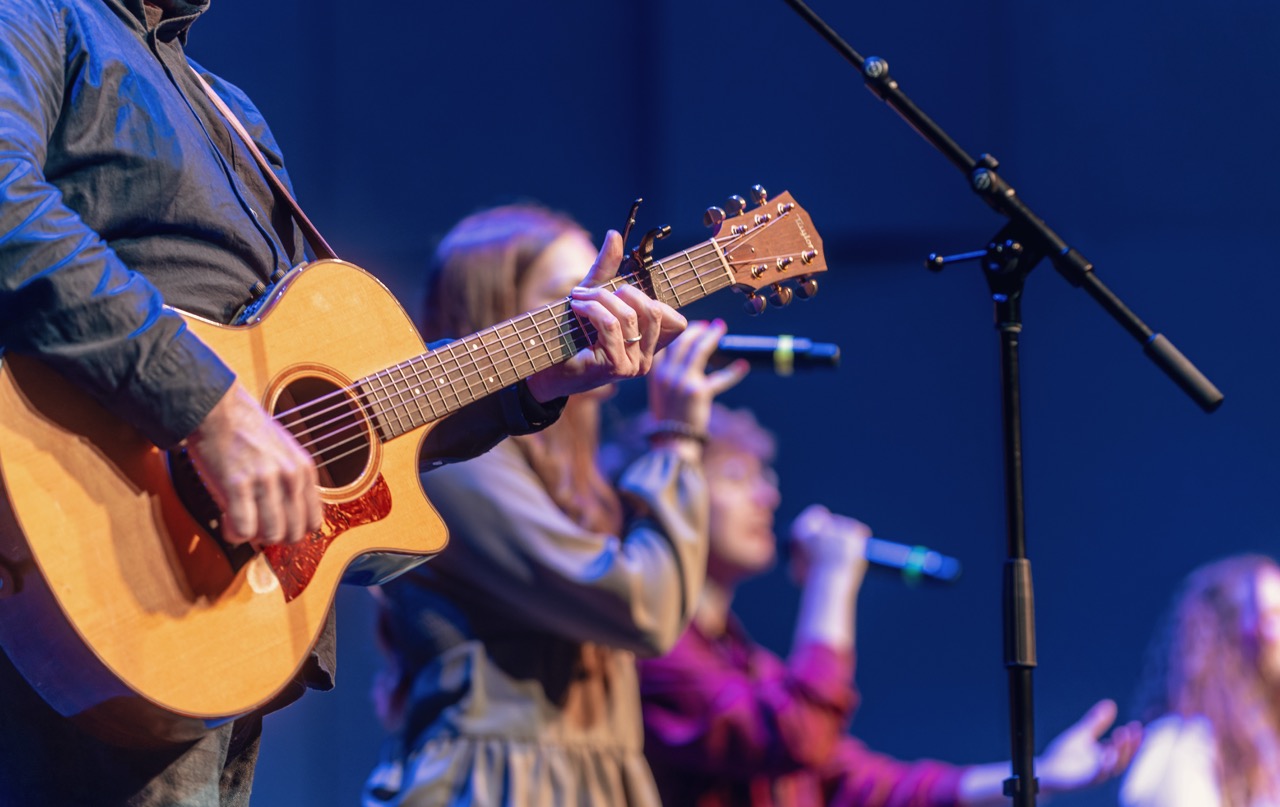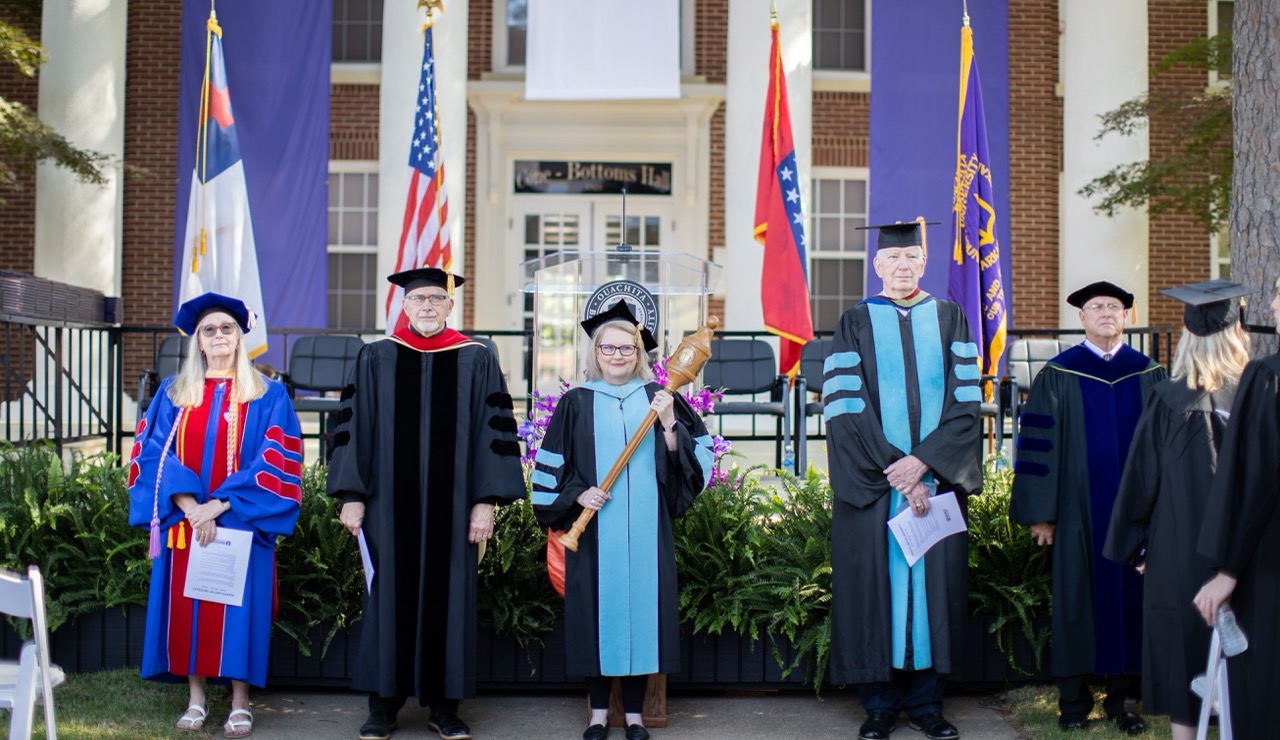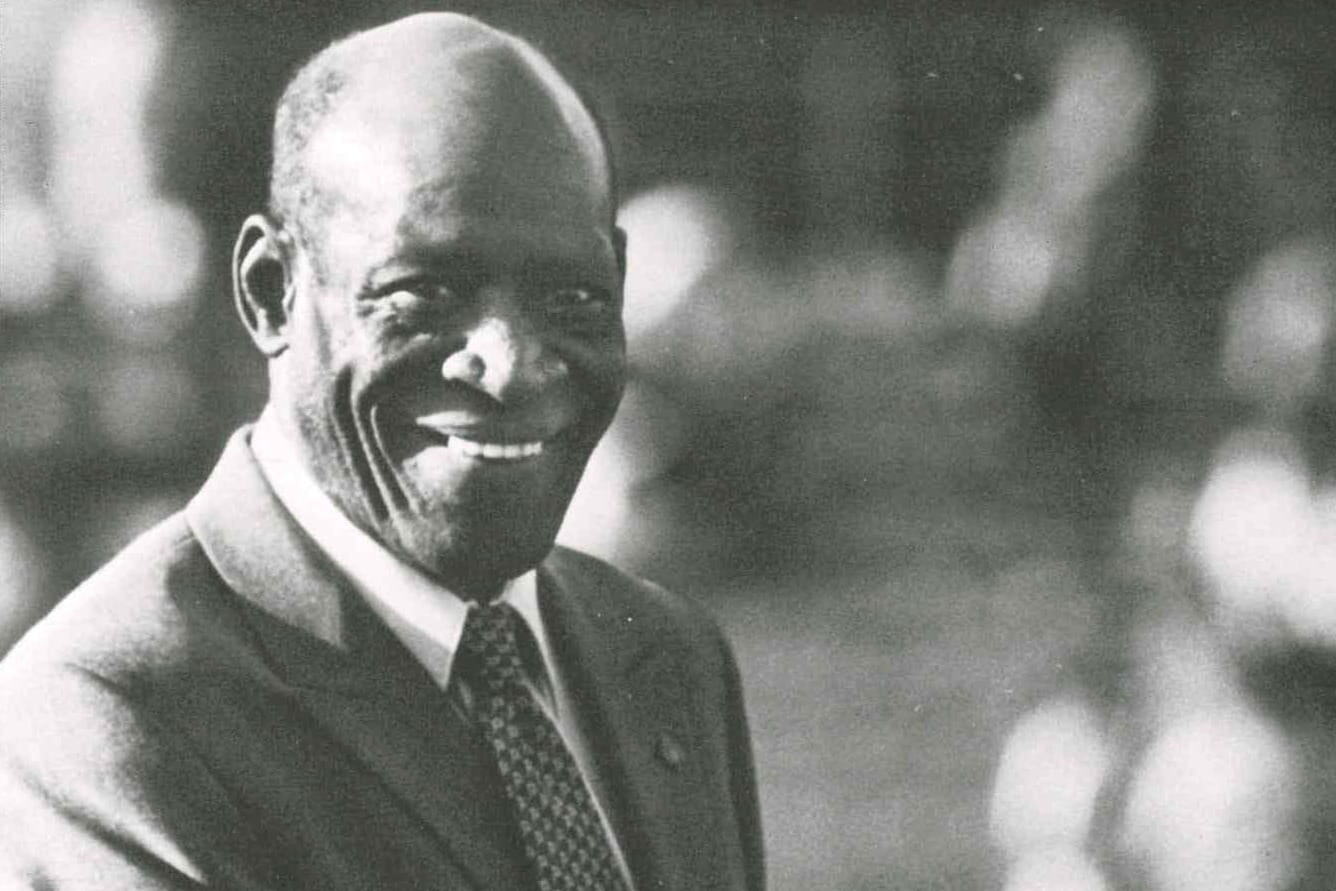Honest to goodness
Faculty & staff explore meaningful work
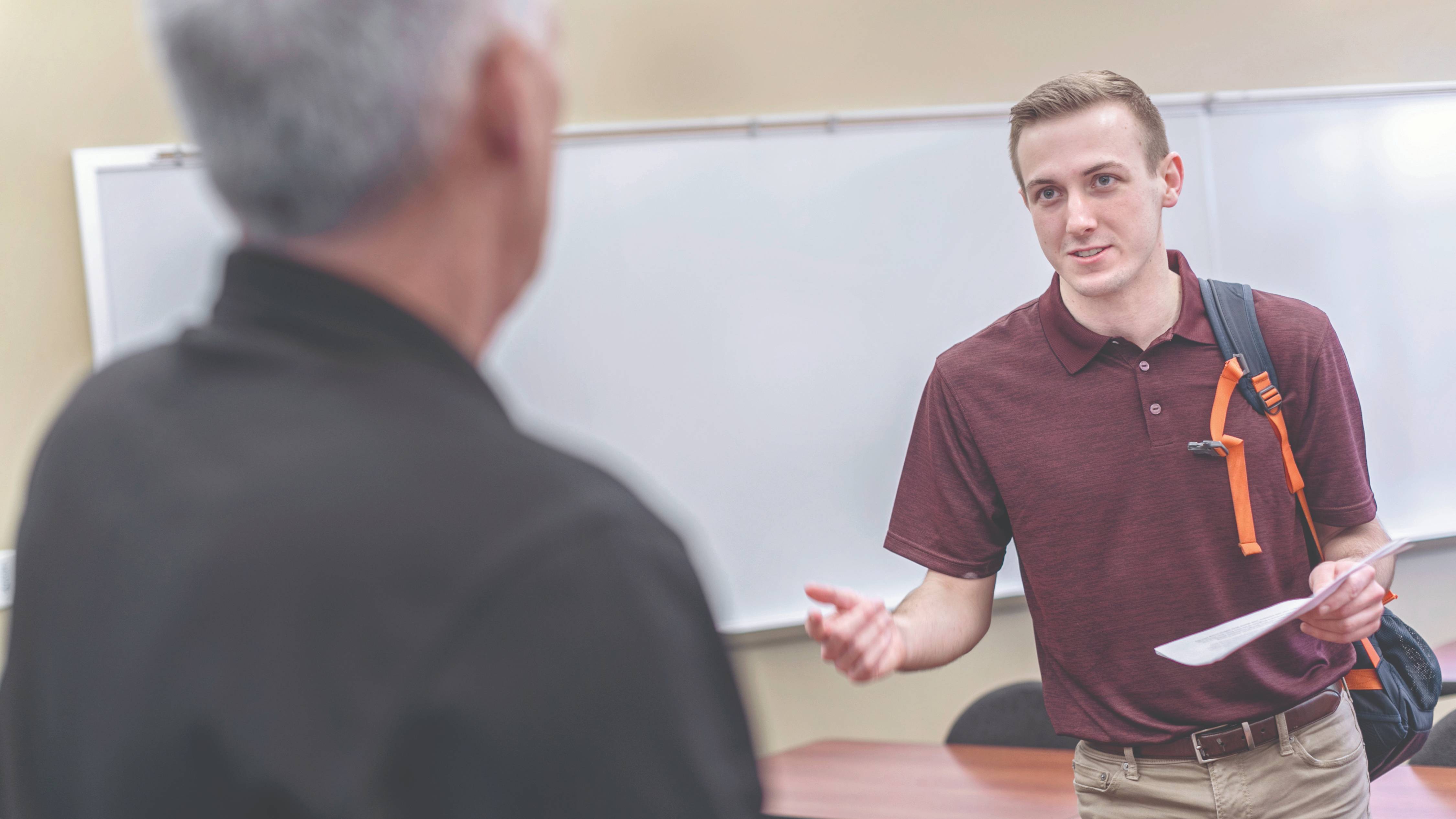 May 15, 2019
- Amy Sonheim
May 15, 2019
- Amy SonheimThis year, I was appointed to lead an initiative on the mission of faculty and staff to guide students toward “lives of meaningful work.” It started off like a bad round of Jeopardy. At first, I thought the answer I was seeking was “What is meaningful work?” By April, however, the question had become more specific. At Ouachita, we aren’t talking about any or all work. The heart of our work at Ouachita is studying. So the question for us Ouachitonians is “What makes academic work meaningful?”
The idea behind the initiative was that if faculty could articulate what we meant by “meaningful work,” then we could lead our students to understand. President Ben Sells and Vice President Stan Poole wisely discerned that for Ouachita’s faculty to grapple with her mission of “meaningful work,” we had to join a larger, more diverse conversation about vocation. So we joined The Council of Independent Colleges and were awarded a professional development grant from the affiliated Network for Vocation in Undergraduate Education (NetVUE).
Our project, “Articulating Vocation as Story for the Common Good,” would be the primary framework for processing our “lives of meaningful work” theme on campus this year, which extended from chapel addresses to light pole banners to hallway conversations. In a front-page Signal article, Dr. Sells communicated to our students three purposes for the grant: 1) to “reinvigorate the vision and approach of faculty and staff for how we understand ‘vocation,’” 2) to “foster deeper conversations among faculty and staff for how Ouachita can help students better prepare and identify their vocations” and 3) to “develop a reader of selected faculty stories on preparing and engaging in meaningful work.”
Ouachita faculty and staff gathered in small groups to listen to diverse voices on vocation and to question and discuss our growing understanding of “meaningful work.” For the first faculty colloquium, I presented Dare to Disappoint: Growing Up in Turkey, a graphic novel by Northwestern University professor Özge Samanci. Samanci chronicles an anguish brought about by her attempts to realize both her father’s desires for her future and her own conflicting desires. In October, our chapter of Alpha Chi national college honor society hosted another discussion of the book in the Sells’ home.
Faculty and staff met three times for lunch and discussion of Steven Garber’s Visions of Vocation: Common Grace for the Common Good. At these lunches, faculty and staff gathered for table talk guided by their peers. Hungry for a variety of opinions, theologians sat with chemists, resident directors with historians, mathematicians with musicians.
These conversations created a foundation for additional analysis and musings across campus. In an anonymous survey on the grant project, one participant wrote, “I love the ways that a community focus on vocation unifies and allows conversation to spill over into other spaces.”
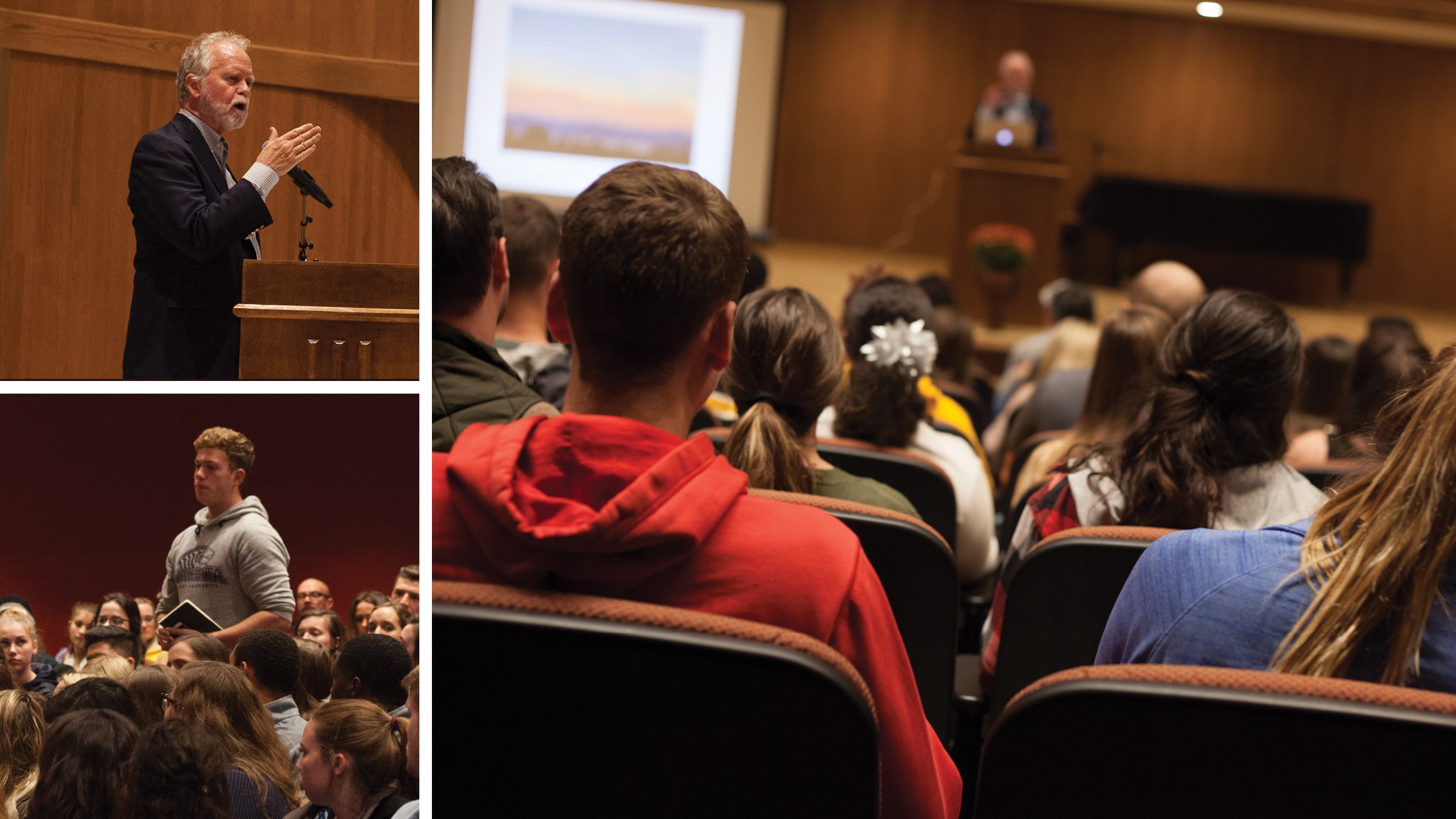
Photos by Ruthie Gaffner
The survey responses noted that all types of work can “be part of God’s redemption.” Participants prized “healthy … disagreements on interpretation” of vocation, finding it “refreshing.” Across the disciplines, vocation was viewed as relational. Dr. Myra Houser, assistant professor of history, articulated her view of “the changing nature of vocation – how it is not one steady job or even career, but a very fluid conception.”
Affirming our insights, Garber himself, a professor at Regent College in Vancouver, visited campus in November to lecture on the responsibility of Christians to address real-life injustice with what we study and learn.
In response, a faculty member wrote, “I valued [Garber’s] focus on the relational component of meaningful work, that it’s about being intentional with people.”
Rachel Roberts, director of career and calling, noted that students come to her struggling with how to connect their book learning with their calling. She voiced that Garber’s question “What am I going to do with what I know?” haunted students.
Put another way, one fine arts faculty member wrote, “In music, so much of the time, a student’s identity and self-worth comes from their public performances. I’ve had many discussions with students about how, in spite of their performances, their self-worth, value and identity come from God.”
To continue the conversation even further, this summer we are embarking on three new projects. Senior English major Mattie Dodson went to Wheaton College in May, selected to participate in the Annual Interdisciplinary Liberal Arts Symposium. Dr. Ben Utter, assistant professor of English, flies to Chicago in June to participate in the highly competitive NetVUE Teaching Vocational Exploration Seminar, which accepted only a handful of scholars. And nine faculty are writing essays to be published in a reader for our students titled The Heart of Our Work: Stories of Meaningful Studies in the Liberal Arts. It narrates the circuitous paths taken to love God through embracing the arduous, onerous, time-consuming studies of wading through Levitical law, wrestling with racism on the continent of Africa, waking up to medieval dream visions and turning one’s metronome to 160 to practice a marimba concerto.
So, without offering our students a pat answer or a career in the bag, we resolved that the answer to – or even the question of – meaningful work is not always straightforward. The truth about God’s callings is that He works relationally in our lives, revealing that what first appear to be individual callings are more often understood in community and what first appears to be one’s lifelong work in the future is academic work in the present. In and of itself, academic work might not be necessarily meaningful; but if done honestly and collaboratively, one must necessarily work hard to discover truth, and the goodness of truth and sincere effort gives life buoyancy, if not downright delight.
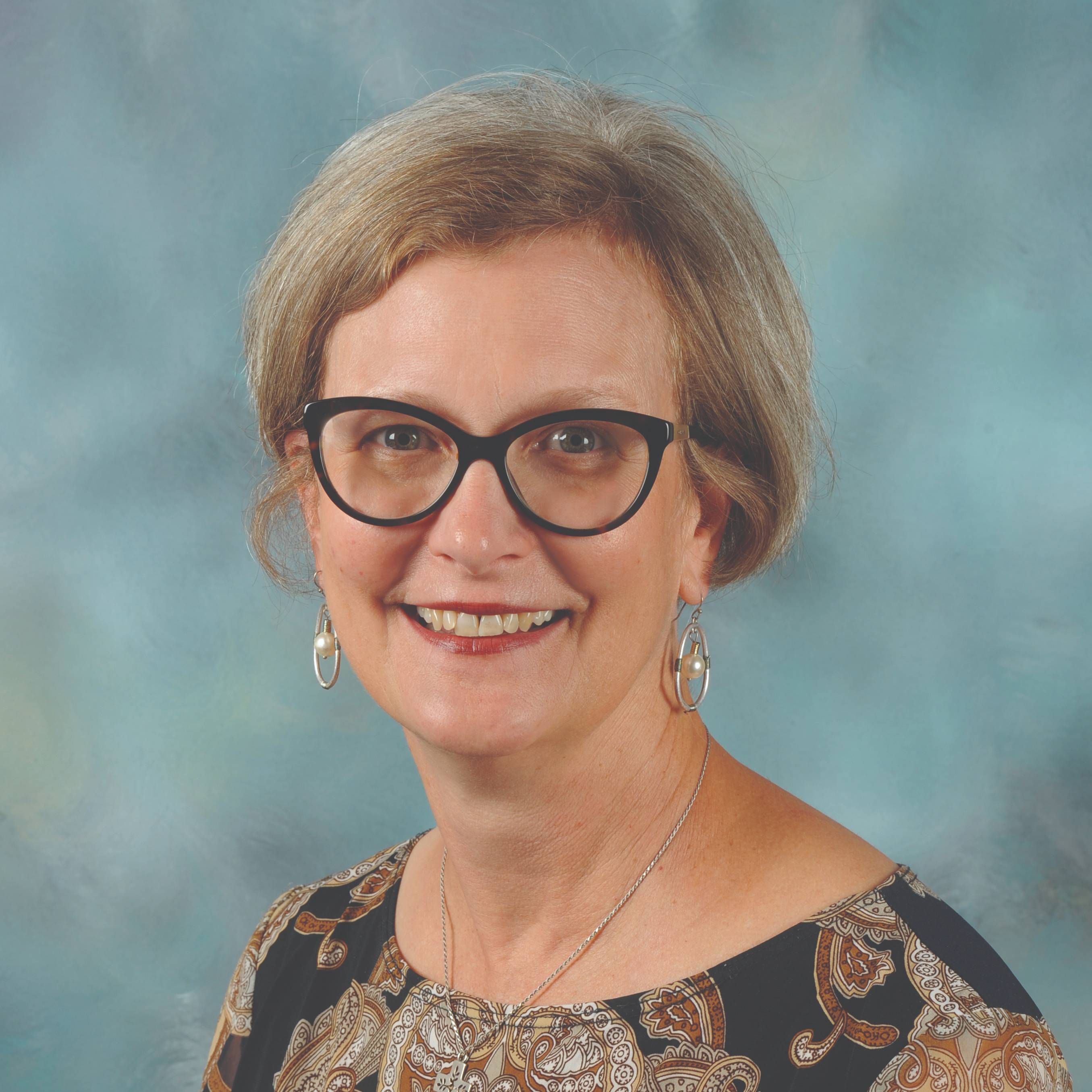 Dr. Amy Sonheim, professor of English, has taught in Ouachita’s School of Humanities
since 1993. She holds degrees from Wheaton College, Baylor University and the University
of Missouri.
Dr. Amy Sonheim, professor of English, has taught in Ouachita’s School of Humanities
since 1993. She holds degrees from Wheaton College, Baylor University and the University
of Missouri.
You Also Might Like
Recent
Ouachita reports Spring '26 enrollment, led by 50% increase in graduate students
February 11, 2026
